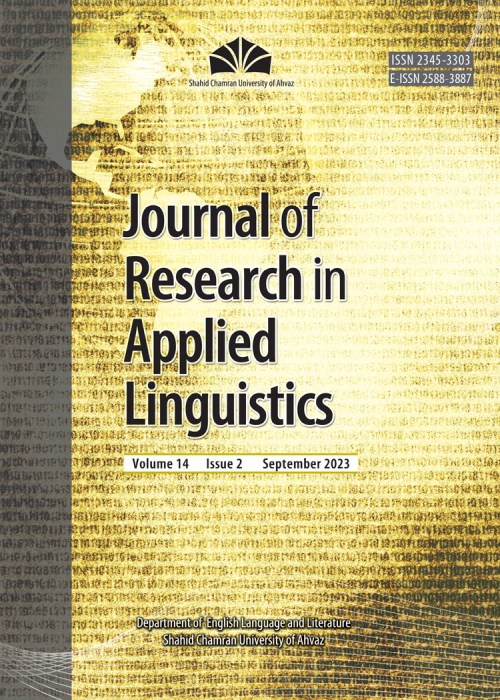Individual and Author's Non-Formations as a Dominant Language of Tatar Poetry of the First Half of the XX Century
Author(s):
Article Type:
Research/Original Article (دارای رتبه معتبر)
Abstract:
The article is devoted to the study of linguistic-stylistic features of Tatar poetry of the first half of the XX century and the identification of the style-forming properties of new lexical means in the language of fiction; it reveals the artistic and aesthetic features and semantics of new formations in the language of poetic texts; explores the methods of formation of new lexical units, which until now have not become the object of special linguistic research. The relevance of the research topic is explained, first of all, by the possibility of revealing the behavior of new formations at different levels of the language and is determined by the need to study new individual-author formations in Tatar poetry. The scientific novelty of the research lies in an interdisciplinary approach: interdisciplinary analysis made it possible, on the one hand, to more fully identify the specifics of the “poetic style” of the Tatar literary language in the first half of the XX century, and, on the other hand, to develop a methodology for studying the stylistic patterns of the formation of the language of poetic texts.
In relation to the research problems, the set of existing basic research methods is effectively used: descriptive (generalization techniques and interpretation of the material under study), comparative-historical methods, partial and continuous sampling techniques, systematization of units by denotative classes, elements of component, contextual, and etymological analysis.
The study proved that any changes in the social, literary and aesthetic process, the history of the Tatar literary language transform not only the ideological and meaningful layer of poetic works but also the stylistic background of their language. The authors established that in the poetic language of the first third of the XX century, lexical units and grammatical forms are formed by suffixation, phonetic method, and abbreviation. Poetic language strives for brevity as much as possible, in terms of the use of linguistic units, the author's choice of linguistic and stylistic means, and differs from other types of works.
In relation to the research problems, the set of existing basic research methods is effectively used: descriptive (generalization techniques and interpretation of the material under study), comparative-historical methods, partial and continuous sampling techniques, systematization of units by denotative classes, elements of component, contextual, and etymological analysis.
The study proved that any changes in the social, literary and aesthetic process, the history of the Tatar literary language transform not only the ideological and meaningful layer of poetic works but also the stylistic background of their language. The authors established that in the poetic language of the first third of the XX century, lexical units and grammatical forms are formed by suffixation, phonetic method, and abbreviation. Poetic language strives for brevity as much as possible, in terms of the use of linguistic units, the author's choice of linguistic and stylistic means, and differs from other types of works.
Keywords:
Language:
English
Published:
Journal of Research in Applied Linguistics, Volume:10 Issue: 1, Spring 2019
Pages:
1389 to 1396
magiran.com/p2058454
دانلود و مطالعه متن این مقاله با یکی از روشهای زیر امکان پذیر است:
اشتراک شخصی
با عضویت و پرداخت آنلاین حق اشتراک یکساله به مبلغ 1,390,000ريال میتوانید 70 عنوان مطلب دانلود کنید!
اشتراک سازمانی
به کتابخانه دانشگاه یا محل کار خود پیشنهاد کنید تا اشتراک سازمانی این پایگاه را برای دسترسی نامحدود همه کاربران به متن مطالب تهیه نمایند!
توجه!
- حق عضویت دریافتی صرف حمایت از نشریات عضو و نگهداری، تکمیل و توسعه مگیران میشود.
- پرداخت حق اشتراک و دانلود مقالات اجازه بازنشر آن در سایر رسانههای چاپی و دیجیتال را به کاربر نمیدهد.
دسترسی سراسری کاربران دانشگاه پیام نور!
اعضای هیئت علمی و دانشجویان دانشگاه پیام نور در سراسر کشور، در صورت ثبت نام با ایمیل دانشگاهی، تا پایان فروردین ماه 1403 به مقالات سایت دسترسی خواهند داشت!
In order to view content subscription is required
Personal subscription
Subscribe magiran.com for 70 € euros via PayPal and download 70 articles during a year.
Organization subscription
Please contact us to subscribe your university or library for unlimited access!


